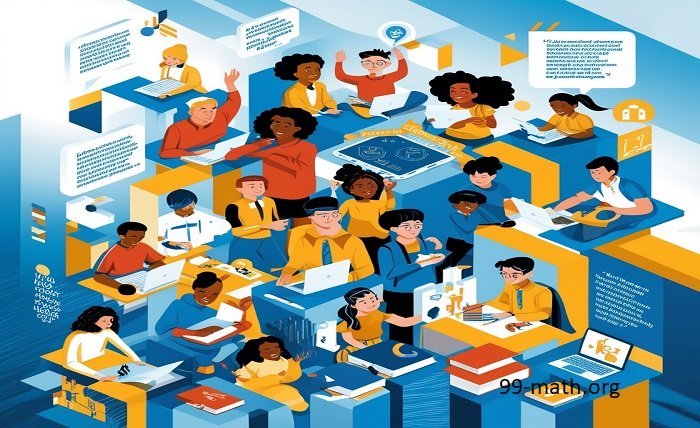Introduction
The field of education has always been dynamic, changing all the time to suit the demands of society and pupils. EL Education is a holistic model that stresses character and community development in addition to academic performance, making it one of the most creative approaches to education in recent years. This blog article will discuss the definition of EL education, its guiding principles, and how it affects students and schools. This guide will provide you a comprehensive grasp of el education, regardless of whether you are a parent, educator, or someone who is just interested in educational reform.
What is EL Education
el education, formerly known as Expeditionary Learning, is an educational approach that combines character development and real-world problem-solving with demanding academics. EL Education was established in 1992 with the goal of providing students with meaningful and productive learning opportunities that promote social responsibility, personal development, and academic performance.
Core Principles of EL Education
Strict Scholars
el education‘s core value is its dedication to upholding excellent academic standards. The curriculum is made to be both demanding and current, which motivates students to study the material thoroughly and hone their critical thinking abilities. High levels of comprehension and mastery are required of students in order to position them for success in both academics and the workplace in the future.
The Development of Character
Character development is emphasized heavily in el education. By incorporating social and emotional learning into the academic program, the approach aids in the development of traits like accountability, empathy, and resilience in kids. With this all-encompassing approach, kids are certain to be well-rounded, knowledgeable people.
The EL Education Model in Practice
Investigative Education
The utilization of expeditions, which are interdisciplinary units that integrate various disciplines around a central theme or goal, is one of the main components of EL Education. Expeditions are made to be interesting and demanding, pushing students to investigate difficult issues and concerns.
Genuine Evaluations
el education places a strong emphasis on actual assessments that gauge students’ comprehension and application of material in practical settings. Assessments comprise projects, performances, and presentations that show students’ knowledge and abilities rather than just typical tests.
Case Studies of Successful EL Education Schools
Urban Innovation Academy, School A
Academic achievement and student engagement have significantly improved at Urban Innovation Academy, an el education school in a big metropolis. Students flourish in a dynamic learning environment that the school has developed via its emphasis on real-world projects and community collaborations.
Rural Excellence Academy, School B
The el education model has been applied in a rural environment by Rural Excellence Academy to address resource constraints and remote location issues. Through the utilization of nearby resources and the development of strong community connections, the school has established a helpful and productive learning environment for its pupils.
Benefits of EL Education
Increased Involvement of Students
Student engagement is raised by el education‘s emphasis on student-centered learning and real-world application. Students are more engaged and motivated in their education when they recognize the value of what they are learning and take an active part in it.
Enhanced Academic Achievement
Studies have indicated that el education schools frequently see increases in student achievement. Students have a deeper comprehension of the material and do better on standardized tests and other indicators of academic accomplishment thanks to the demanding curriculum and real assessments.
Challenges and Considerations
Costs of Implementation
A difficulty in putting the el education concept into practice is the expense of curriculum, professional development, and other resources. To ensure that EL Education concepts are successfully integrated, schools must carefully plan and budget.
Opposition to Change
It’s possible that certain educational institutions and staff will oppose the adoption of new models. For el education to be implemented successfully, it must overcome opposition and guarantee buy-in from all stakeholders
Future of EL Education
Increasing Visibility
There’s a chance that el education will reach additional districts and schools as it shows itself to be beneficial. In order to guarantee that more students profit from the model’s novel approach, efforts must be made to support and promote it.
Technology Integration
The el education model’s incorporation of technology creates new chances to improve learning outcomes. Technology may help with practical projects, promote teamwork, and offer fresh instruments for evaluation and criticism.
Conclusion
A major change in the way we approach teaching and learning is represented by el education. Through the integration of demanding academics, character development, and hands-on learning, EL Education offers a comprehensive and captivating educational experience. The EL Education model offers a way to better student outcomes, stronger character development, and a pleasant school atmosphere, even when there are obstacles to overcome. EL Education is a promising example of how cutting-edge methods can improve students’ learning experiences as education continues to change.
FAQ
What is the main goal of EL Education?
el education‘s primary objective is to offer a thorough education with a focus on character development, high academic standards, and real-world learning. The goal of the model is to produce responsible, informed, and involved students who are ready for success in the future.
How does EL Education differ from traditional education models?
el education combines academic instruction with real-world learning experiences and character development, setting it apart from standard education methods. While EL Education places a strong emphasis on the development of both intellectual and interpersonal abilities, traditional models frequently place a greater emphasis on academic accomplishment.

